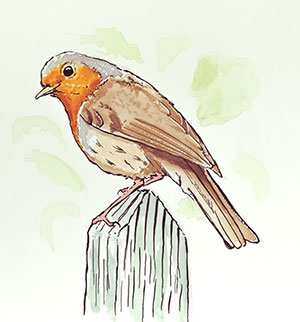Explore nature's genetic secrets in new exhibition


The exhibition can be visited during monthly Open Saturdays at the Wellcome Genome Campus. It is free to attend but booking is required. Open Saturday dates in 2018 include 18th August, 15th September, 20th October, 17th November, 15th December, as well as 19th January 2019.
Curious Nature explores the Wellcome Sanger Institute’s 25th anniversary project to sequence the genomes of 25 UK species* for the first time. The newly-sequenced genomes will act as powerful tools for a global community of researchers and conservationists. They will lead to future studies into the biodiversity of the UK and aid the conservation and understanding of these species.
The 25 species are divided into five categories depending on the qualities they share:
- Flourishing, species on the up in the UK
- Floundering, endangered and declining species
- Dangerous, invasive and harmful species
- Iconic, quintessentially British species that we all recognise
- Cryptic, species that are out of sight or indistinguishable from others based on looks alone.
The species were nominated by a wide-ranging community of researchers, and five of them were chosen by thousands of school children and members of the public around the globe. The species chosen build a picture of biodiversity in the UK, and all of the results will be made publicly available.
“For centuries, humans have classified and interpreted the natural world, to understand how things are related to each other. Our ability to analyse the genetic information of all living things, encoded in their DNA, is enabling us to explore these similarities and differences in greater detail than ever before. Creating a reference genome is not an easy task, but once the 25 genomes are complete, they will unlock nature’s secrets in a way that was not possible before.”
Rebecca Gilmore Exhibitions and Interpretation Co-ordinator from the Wellcome Genome Campus Public Engagement team
More information
The exhibition is available to visit as part of the Wellcome Genome Campus’ Open Saturdays programme, where everyone is welcome to visit the Campus. Dates to visit in 2018 include:
18th August, 15th September, 20th October, 17th November, 15th December
And 19th January, 2019
Open Saturdays are free for all but booking is required. Curious Nature is also open by arrangements for group visits. For further details, and to book your free tickets, visit: www.wgc.org.uk/engage
*For more information on the 25 Genomes Project, visit https://www.sanger.ac.uk/collaboration/25-genomes-25-years
Selected websites
About Wellcome Genome Campus Public Engagement
Through a wide range of projects, activities, visits and events Wellcome Genome Campus Public Engagement encourages exploration and discussion about genomics, from exciting research findings to the social and ethical questions it can raise. Working together with collaborators in scientific research, the arts and humanities, public engagement and education specialists, and cultural organisations, we aim to share knowledge, spark discussions, and foster a community of engaged researchers. Wellcome Genome Campus Public Engagement is part of Connecting Science. www.wellcomegenomecampus.org/publicengagement
About Wellcome Genome Campus Connecting Science
Wellcome Genome Campus Connecting Science’s mission is to enable everyone to explore genomic science and its impact on research, health and society. We connect researchers, health professionals and the wider public, creating opportunities and spaces to explore genomic science and its impact on people. Connecting Science inspires new thinking, sparks conversation, supports learning and measures attitudes, drawing on the ground-breaking research taking place on the Wellcome Genome Campus. www.wellcomegenomecampus.org/connectingscience
The Wellcome Sanger Institute
The Wellcome Sanger Institute is one of the world’s leading genome centres. Through its ability to conduct research at scale, it is able to engage in bold and long-term exploratory projects that are designed to influence and empower medical science globally. Institute research findings, generated through its own research programmes and through its leading role in international consortia, are being used to develop new diagnostics and treatments for human disease. To celebrate its 25th year in 2018, the Institute is sequencing 25 new genomes of species in the UK. Find out more at www.sanger.ac.uk or follow @sangerinstitute
Wellcome
Wellcome exists to improve health for everyone by helping great ideas to thrive. We’re a global charitable foundation, both politically and financially independent. We support scientists and researchers, take on big problems, fuel imaginations and spark debate. wellcome.org


